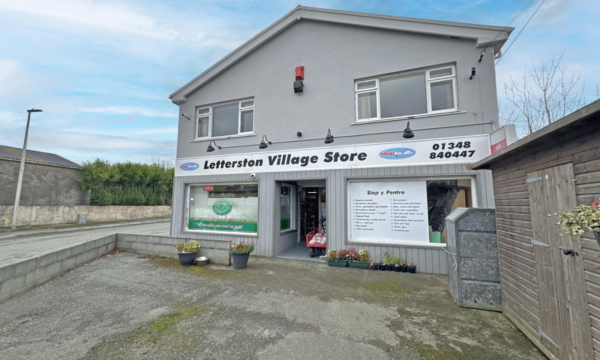
GUEST COLUMN:
Matthew Mason MRICS
Director & Head of Valuation, South Wales
Certus Property Consultants
As we move through 2025, Cardiff’s housing market is experiencing significant structural change, nowhere more visibly than in the city’s once freewheeling House in Multiple Occupation (HMO) sector.
What was previously seen as a high-yield investment class with relatively low barriers to entry is becoming more complex, more regulated, and increasingly defined by planning policy, licensing frameworks, and operational quality.
While yields remain healthy in key parts of the capital, notably Cathays and Roath, the broader story is one of market segmentation. Investors and valuers alike are beginning to differentiate not just between locations, but between compliant and non-compliant assets, managed and unmanaged portfolios, and scalable professional operations versus individual or ad hoc landlords.
This is not a distressed market, but it is a different one. Understanding the shifts now underway is vital for anyone seeking to buy, sell, value, or hold residential investment assets in Wales’ capital.
Supply is Frozen in Key Wards
The most significant market development stems from planning restrictions now in force across Cardiff. Under the city’s updated HMO planning policy, applications to convert properties to HMO use (Class C4 or sui generis) are subject to a strict 20% threshold rule in designated areas. This includes saturated wards like Cathays and Plasnewydd, which have long been popular with student landlords and buy-to-let investors.
The result? A de facto moratorium on new HMOs in these areas. Planning applications are being routinely rejected once density thresholds are breached. As a consequence, the existing licensed stock, especially larger or en-suite HMOs, is becoming increasingly valuable. For investors, this regulatory cap is creating artificial scarcity, supporting values even as interest rates and broader market sentiment shift elsewhere.
Yields Remain Strong…….For Now
Despite the policy-driven supply constraint, demand for quality HMO accommodation remains robust. In CF24, covering Roath and Cathays, high-spec properties continue to deliver gross yields of around 8.9%, driven by strong tenant demand from Cardiff’s student population and a growing base of young professionals.
However, the headline returns tell only part of the story. To achieve these yields sustainably, properties must now meet increasingly rigorous standards, especially under Cardiff’s Additional Licensing schemes. These require enhanced fire safety, minimum room sizes, and higher amenity standards across many HMOs.
For landlords, staying compliant involves more than just ticking boxes. A missed renewal or minor breach can now directly impact both cash flow and capital value, especially as local authorities step up enforcement activity.
The Value Shift: From Yield to Compliance
These policy and regulatory developments are altering the way HMOs are valued, and who is willing to buy them. Compliance and management quality are emerging as the key determinants of long-term asset value.
Three valuation trends are now clear:
- Licensed Assets Command a Premium
Properties with existing HMO licenses, particularly those with strong occupancy histories, en-suites, and low maintenance liabilities, are attracting valuation premiums. The reason is straightforward: in areas where new licenses are no longer available, existing permissions are highly sought after. - Non-Compliant Properties Are Being Penalised
In contrast, older HMOs that lack compliance upgrades or have poor licensing records are struggling. Even minor issues, like outdated fire doors or substandard kitchen facilities, can reduce buyer appetite and depress values. Investors are increasingly risk-averse and wary of future remediation costs. - Investor Sentiment is Polarising
Professional landlords and institutional players are consolidating portfolios, targeting compliant stock, investing in upgrades, and building economies of scale. Meanwhile, many smaller, part-time landlords are choosing to exit the market, discouraged by rising operational complexity and regulatory pressure.
A Segmented, Not Distressed, Market
It’s important to note that Cardiff’s HMO sector is not in decline. Demand remains strong, and rents continue to rise modestly in line with inflation. However, the market is becoming highly segmented, with value now determined less by location or number of bedrooms, and more by legal viability, planning headroom, and compliance track record.
This segmentation is also influencing lending criteria. Increasingly, lenders are asking for detailed compliance documentation before advancing funds or finalising valuations. Some are beginning to differentiate loan terms based on management structures and licensing security.
Implications for Stakeholders
For Cardiff and the wider Welsh housing sector, these changes present both opportunities and risks.
- Investors with compliant, well-run HMOs are well positioned to benefit from scarcity-driven capital appreciation, especially if they can demonstrate strong occupancy and forward-looking management.
- Valuers and agents need to refine their methodologies, ensuring that licensing, planning restrictions, and tenant stability are factored into appraisals alongside traditional yield metrics.
- Policy makers face the ongoing challenge of balancing community cohesion with the realities of urban housing demand. While restrictions on HMO density aim to prevent overconcentration, they also risk reducing housing supply for the city’s large student and young renter population.
Looking Ahead
Cardiff’s HMO market is undergoing a quiet transformation, from a broad, loosely regulated playing field to a more contained, professionalised sector where only the best-managed assets will thrive.
The winners in this new environment will be those who treat their portfolios not simply as property investments, but as regulated businesses, with all the systems, standards, and risk management that implies.
For everyone else, the days of passive income from basic shared houses may be drawing to a close.
Matthew Mason MRICS is a Director of Certus Property Consultants with Welsh offices in Swansea, Narberth, Cardiff and North Wales. Certus, specialise in delivering valuation solutions for a range of clients across all asset types.











